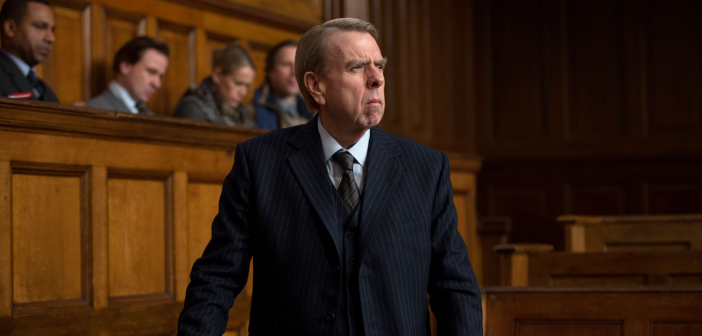Film Review | Is Denial the Post-Truth Allegory of 2016 We’ve Been Waiting For?
Denial has every right to be a movie of our age. We live in the era, as we are so often told, of post- truth, a strange period in which the lies we want to be true can be packaged as such on our newsfeeds. A film about a the real trial of a holocaust denier who is able to wrangle ‘indestructible , theory shattering truths’ out of minor, questionable uncertainties seems so perfectly timed for the factually barren wasteland of 2016 that the title might as well be given the superfluous –exit suffix. Denial however is not a movie for our time, or any time for that matter, and ends up feeling as about as culturally relevant as a widely read, well-researched online article that informs the reader with unbiased nuance.

Denial is not strictly a terrible film. It’s hard to pick out anything that is does especially wrong, but more to the point it is hard to find anything all that right about it either. So no, the film is not going to help explain how an orange man, coiffed with the hair from a horse, managed to pussy-grab the white house out the hands of the American people. Speaking of Trump, Denial does however, have it its very own man who yells at clouds, who spews vocal deluge and uses the rhetorical equivalent of budget-level smoke and mirrors when he talks. That introduction belongs to David Irving, the disgraced historian who spent much of his professional career maintaining that the horrors of the holocaust were grossly exaggerated and Hitler’s involvement in any genocide was non-existent.
The central conflict comes about after Irving sues the American Historian Dr Deborah Lipstadt (Rachel Weisz) in the English high court for what he sees as libellous attacks against him. Lipstadt had, in one of her own books, denigrated Irving as a “liar and a falsifier of history”. The case, as the film is so eager to remind us , is not just about a libel suit but also about the heart of the holocaust debate itself. It’s importance is certainly not lost of the viewer, but only because the director, Mick Jackson, feels the need to tell us in ham-fisted fashion every 10 minutes or so .“This case is happening to you but it’s not about you” Tom Wilkinson’s barrister Richard Rampton earnestly tells Lipstadt in the kind of line that she is fed throughout the film by the well-read, ox-bridge suits that surround her constantly . One wonders why a holocaust historian, an expert on the subject, would need this material rammed down her throat by her solicitors i.e. men who are not experts on the subject. I guess it might be because the film thinks audiences can only understand the kind of exposition that’s being explained by men to women who know more about it then they do.
To be fair to Lippstadt’s character, Weisz’s interpretation is suitably spunky and headstrong , with her own understandably emotional cracks that surface in a moving sequence when she and Rampton visit Auschwitz (Lipstadt was herself a Jew). Timothy Spall’s darkly charismatic, if somewhat cartoonish, turn as Irving is the liveliest element here. His is the living embodiment of the far right echo-chamber, a man whose toxic convictions can contort any disagreeable fact into one which suits his needs. Even when Irving says ludicrous things like calling someone a denier is akin calling them a paedophile or terrorist, Spall’s overly pronounced drawl makes the man the most terrifying thing he can be, someone who actually believes the words he says.
[arve url=”https://www.youtube.com/watch?v=Gfyw7Uz8_2A”]
The film does have its interesting, minor divergences. One of the few human moments Irving is afforded is when he seen playing on the floor with his young infant daughter. The same moment is given sinister connotation however, when it’s later revealed he had been teaching his daughter racist nursery rhymes when she was just 3 months old. Debates over the ethical implications of placing survivors on the stand also raise interesting questions about who has the right to dispute such events. Strands like this, however, aren’t as explored as they should be. Jacskon’s vision instead gets bogged down by silly sequences – there is actually a scene where journalists rush out of court in a frenzy after supposedly juicy Irving quote – and clunky character exchanges.
For the most part, what unfolds is a bit like one of those tourist trap boat rides in an underwhelming city. It’s a gradually paced, passably entertaining ride that never really gets out of first gear. The BBC were one of the production companies on the film and it’s not surprising, Denial is the kind of the stodgy, Sunday afternoon, made-for-TV historical drama they that would fall into the obscure ether not long after it aired. Jackson’s film appears to wilfully disengage with emotional involvement. For a film that seems to so intent on making a plea for basic humanity, it’s ironic the degree to which it lacks that ingredient.
Denial is in selected cinemas from 27th of January.
Featured Image Credit

